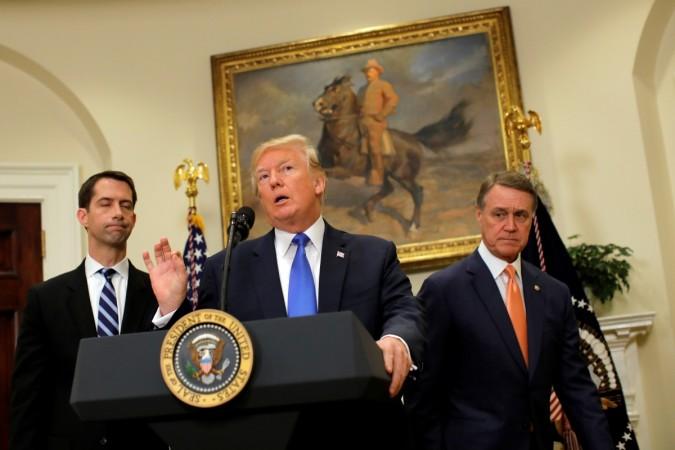
A new bill mulled by the United States is looking to cut immigration by half — in line with the electoral promises of President Donald Trump — while increasing the number of residency cards given to skilled, English-speaking non-Americans.
The bill is good news for Indian information technology (IT) professionals, who have recently seen a drastic fall in the job market because the US has cut down on the number of H1-B visas. That measure had been meant to push multi-national firms working in the US to recruit more people from within the country.
Now, with the new bill, Indians proficient in English and considered skilled or meritorious enough to work in the US will get a leg-up thanks to the Reforming American Immigration for Strong Employment (RAISE) Act.
'Historic and very vital proposal'
Addressing reporters at the White House on Wednesday, August 2, Trump called the bill the "most significant reform to our immigration system in half a century" and thanked Senators Tom Cotton and David Perdue "for their tremendous work in putting together this historic and very vital proposal."
He said that the RAISE Act would "reduce poverty, increase wages, and save taxpayers billions and billions of dollars" by "changing the way the United States issues Green Cards to nationals from other countries."
Trump explained: "The RAISE Act ends chain migration, and replaces our low-skilled system with a new points-based system for receiving a Green Card. This competitive application process will favour applicants who can speak English, financially support themselves and their families, and demonstrate skills that will contribute to our economy."
He also said that the act would mean no migrant or immigrant in the US could collect welfare, and therefore would be forced to lookfor work. This "will help ensure that newcomers to our wonderful country will be assimilated, will succeed, and will achieve the American Dream," said the billionaire business tycoon-turned-politician.
![[Rerpresentational image] Passport](https://data1.ibtimes.co.in/en/full/657251/passport.jpg?h=450&l=50&t=40)
Good news for Indian IT workers?
In the words of Senator Cotton, one of the proposers of the bill: "The RAISE Act will change all of that by re-orienting our Green Card system towards people who can speak English, who have high degrees of educational attainment, who have a job offer that pays more, and a typical job in their local economy, who are going to create a new business, and who are outstanding in their field around the world."
This is good news for not only salaried IT professionals from India but also young IT entrepreneurs who wish to start their own business venture in the US.
Coming at a time when top IT companies in India are cutting down on their workforce in light of earlier Trump-era laws that had called for more recruitment from the US if the firms wanted to work there, the RAISE Act — if passed by the US and implemented — would translate into cheer for the Indian IT sector.









